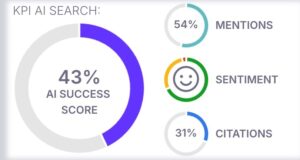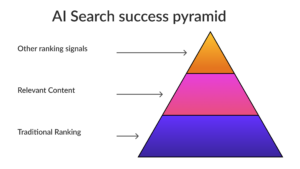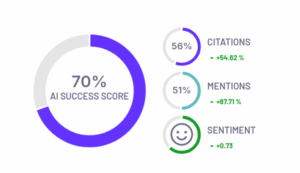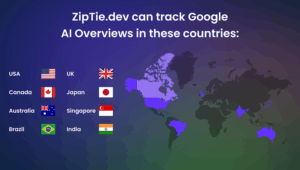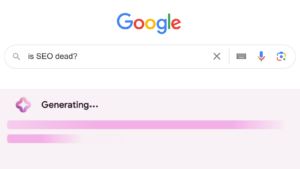I recently explored how AI Overviews impact keywords related to “Your Money, Your Life” (YMYL) queries.
Specifically, I focused on how frequently AI Overviews appear for questions, such as “Which car has the highest safety rating?”
I examined several important life and financial topics: customer rights, car safety rankings, and medical issues such as heart attack symptoms and cancer. The results were quite surprising.
Google IS NOT hesitant to generate AI Overviews for these crucial queries.
Frequency of AI Overviews in YMYL Topics
Here’s how often AI Overviews appeared in my research:
- Customer Rights: 66%
- Car Safety Ratings: 53%
- Heart Attack Symptoms: 81%
- Cancer: 70%
- Loans: 43%
Sample queries analyzed
For ref, here are some of the specific queries I used in my analysis:
- Who do I contact about consumer rights?
- What are my consumer rights when a mortgage is sold?
- Which car has the highest safety rating?
- Why do people ignore heart attack warning signs?
- What car has the worst safety rating?
Identified Issues
During my review, I noticed several significant problems with AI Overviews:
- Outdated Sources
For instance, for the query regarding which car company has the highest safety rating, one source I found was from 2021. Given the rapid advancements in automotive safety technology, this information is likely outdated and could mislead users.
2. PR Management Concerns:
In response to the question about cars with zero-star safety ratings, Google provided a list of specific vehicles.
While the Australasian New Car Assessment Program (ANCAP) is a legitimate organization, this raises concerns about potential negative publicity for brands and products online.
3. Irrelevant Sources:
For the query about why people ignore heart attack warning signs, one of the sources cited was Business Insider. Although it is a trusted source for business news, it may not be an appropriate reference for medical advice.
4. Obscured Source Information:
In response to the question about heart attack warning signs, one of the sources listed was Google Knowledge Graph.
While this project is impressive, at least for me, it doesn’t serve as a reliable source since it represents Google’s internal knowledge rather than an external reference.
Additional tip – opportunities for large publishers
Some queries showed that Google tends to favor large publishers as sources. This preference likely stems from their popularity and credibility on general topics, which could overshadow smaller websites that specialize in these areas.
FAQ
How frequently do AI Overviews appear in YMYL queries?
Recent research shows varying frequencies across different YMYL topics. Customer rights queries show AI Overviews 66% of the time, car safety ratings 53%, heart attack symptoms 81%, cancer-related searches 70%, and loan information 43%. These frequencies indicate Google’s significant use of AI Overviews even in sensitive YMYL areas.
What are the main issues with AI Overviews in YMYL content?
Several critical issues have been identified: 1) Outdated sources, such as 2021 car safety ratings that may not reflect current standards, 2) PR management concerns when listing specific low-rated products, 3) Inappropriate source attribution, like Business Insider being cited for medical information, and 4) Obscured source information, particularly when referencing internal knowledge bases rather than external expert sources.
How can content creators adapt to AI Overviews in YMYL searches?
Content creators should focus on producing specialized, high-quality content with expert backing and original research. This includes ensuring current information, proper source attribution, and clear formatting. Additionally, implementing schema markup and optimizing for AI readability while maintaining authoritative content is crucial.
What are the ethical implications of AI Overviews in YMYL queries?
AI Overviews in YMYL queries raise significant ethical concerns regarding accuracy, transparency, and reliability. These systems must maintain high standards for fact-checking, clear source attribution, and balanced information presentation. The potential impact on user health and financial decisions makes these considerations particularly critical.
Conclusion
AI Overviews are appearing quite often when people search for important topics about money and health. This clearly shows the direction Google wants to follow – AI Overviews can appear on various types of queries, and Your Money Your Life is not an exception.
However, there are significant issues related to source selection that should be fixed.
Fixing these problems is really important. We need AI Overviews to provide accurate and reliable information. We also need to ensure that people who create content can still do their work. As AI improves, we must keep a close watch on it. We should speak up and advocate for ways to make the information more trustworthy. This way, people can receive the right help for their health and financial issues. In the end, this will help everyone become better informed.


